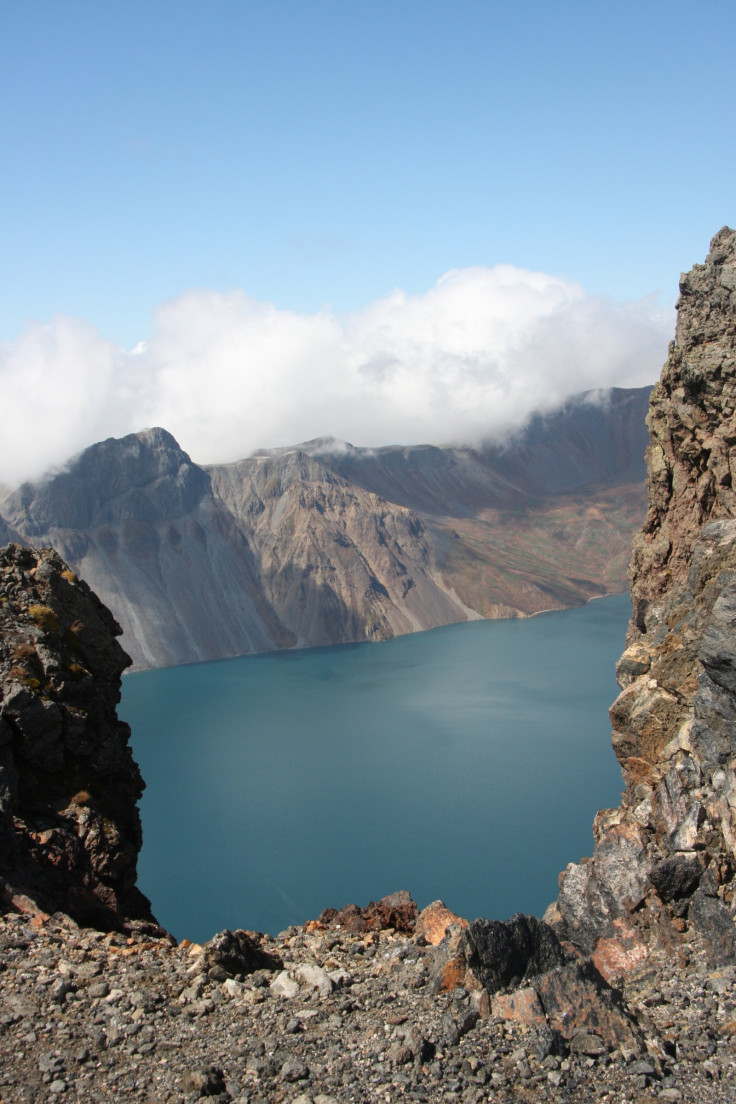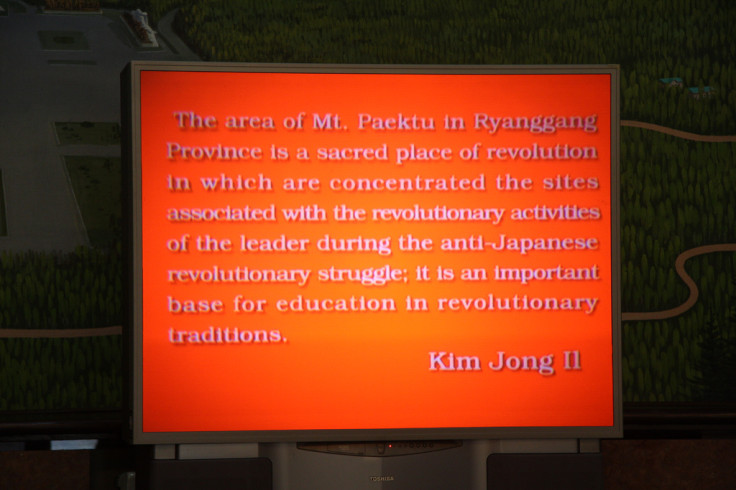Mount Paektu: UK Scientists Study Illusive Volcano in North Korea 1,000 Years After Last Eruption

Two British volcanologists have been given access to a huge volcano in North Korea that has, until now, been unstudied by foreign scientists.
Clive Oppenheimer, a professor of volcanology at Cambridge University, has recently returned from Pyongyang following an eight-day trip to Mount Paektu.
He told the Associated Press that there is a great deal to study at the site, which sits on the border between North Korea and China.
The volcano last erupted over 1,000 years ago, blanketing swathes of land in ash: "It's one of the biggest eruptions in the last few thousands of years and we don't have yet a historical date for it", he said.
"The rocks are a bit like the black box of a flight recording. There's so much that we can read from the field site itself."
Mount Paektu does not sit on any of the tectonic locations that are often responsible for volcanic eruptions, so one of the questions the scientists are keen to answer is why it even exists.
They are also looking to find out what happened when the volcano last erupted, what effect it had on the surrounding ecosystems and whether it will erupt again.

In 2002, concerns were raised that Paektu would erupt after seismic activity and ground swelling suggested it was set to blow. South Korea at the time raised concerns that the country's nuclear tests, that were being carried out just 100km away, might trigger an eruption. However, the activity subsided in 2006.
James Hammond, a seismologist at Imperial College in London, told the news agency: "That activity sparked a lot of interest both in China and the DPRK, but also in Japan and South Korea and internationally [but] it's certainly very tranquil at the moment."
Paektu is considered a sacred mountain and from the beginning of history, Koreans have depended on it spiritually. Its dense forest provided armies resistance against Japanese occupation and during the Korean War it is claimed Kim Il-sung organised his forces there. It is also said that it was the birth place of Kim Jong-il, despite records suggesting otherwise.
North Korea is developing plans to make the volcano a destination for foreign tourists due to its clear blue crater lake.
© Copyright IBTimes 2025. All rights reserved.






















